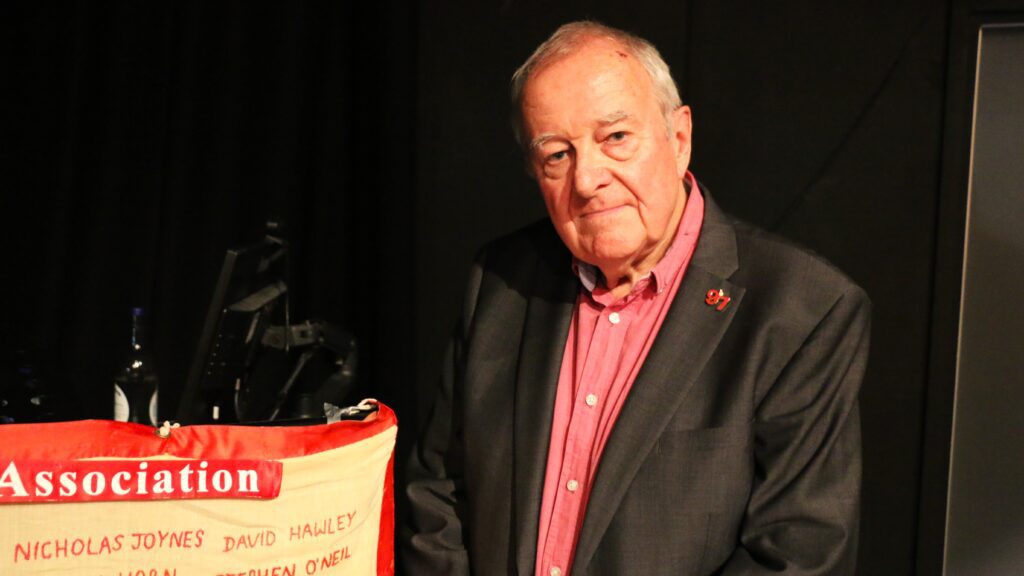As the nation prepares to celebrate Queen Elizabeth’s Platinum Jubilee next month, this week across Europe and around the world, millions of television viewers and ‘Eurofans’ are tuning-in for the annual sights and sounds of the spectacle that is the Eurovision Song Contest (ESC). Both institutions have longevity and are well-loved.
This year marks the 66th anniversary of the ESC, first established in 1956 to bring post-war Europe together on ‘the wings of song’. It has inhabited a space outside of nation state politics, guided by the auspices of the European Broadcasting Union (EBU) to ensure that it embodies the cosmopolitan-pacifist principles of public service broadcasting (PSB): community, belonging, cohesion and a welcoming of difference. And it has certainly done that.
By separating itself from geopolitics over 66 years the ESC has established itself as a non-political space for participating countries, with strict rules about song content, and even flag waving by artists and fans in the arena. That said, the simmering social and political tensions that exist between these countries outside of the ‘Eurovision bubble’ don’t disappear when the Contest is underway.
This year, at a time when war is happening in a participating country, how does this impact on what is essentially a light entertainment television programme? During the first semi-final co-presenter Mika’s script espoused the values of the ESC/PSB, pointing to but not referring to what is occurring outside the bubble. No mention of war. If we want a distraction away from ‘real world’ events, the EBU is giving us just that. It allows us to escape to the bubble and away from our anxieties of what has happened over recent few months and years, helping us to heal through togetherness – and music.
Ukraine is participating and, unsurprisingly perhaps, is installed as the favourite to win. Why is this? Is it because of a ground swelling of sympathy for Ukraine and the horror of the conflict they are currently enduring, or is it because it’s the best song? Or is it because mercenary punters have placed bets looking for a windfall? (Ukraine went from fifth to first with the bookies when the war started).
The song is very much in the Ukrainian mould of entries they have competed with in the past. Last year their song Shum, performed by Go_A, placed 5th in the Grand Final. That song had a similar sound and feel to this year’s entry, Stefania by Kalush Orchestra. So clearly, without war, this song would probably do well if last year’s success is anything top go by (I realise this is conjecture on my part). That said, I would never have imagined that it would win.
In an article I wrote in 2017, I suggested that we need to consider if people vote for a country or a song. Ukraine have progressed to the Grand Final, following their appearance in the first semi-final on Tuesday. I think Ukraine will get a lot of votes as a signifier of solidarity and sympathy with the country that will have very little to do with the song. I am fascinated to see what happens on Saturday night when the final voting results reveal the winning song, and county.
One of the most poignant Eurovision finals for me was back in 2014, when Austria’s Conchita Wurst won with their Bond-esque song Rise Like A Phoenix. What happened that night was Europe showing itself to embody those ESC/PSB principles of openness and acceptance by rewarding a man with a beard in a dress with the win. It showed that we (the European continent and beyond) are inclusive and compassionate. I am sure that Kalush Orchestra and Ukraine will feel the love on Saturday, let’s see if that embrace takes them all the way to victory.
In many ways, ESC in 2022 is as it was in 1956 – unifying us through song and showing us that we are stronger together.
May 13, 2022



